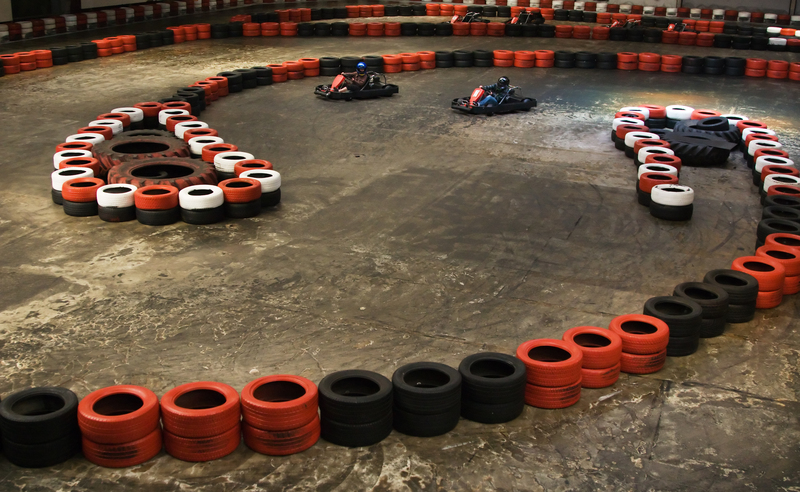How to Reuse and Recycle Bulky Waste for Savings
Modern households and businesses generate considerable amounts of bulky waste, including old furniture, mattresses, appliances, garden equipment, and more. These large items are notoriously difficult to dispose of responsibly. Reusing and recycling bulky waste is not just environmentally friendly--it can also translate into substantial savings and creative opportunities. This article explores comprehensive strategies for transforming your unwanted bulk items into valuable resources.

Understanding Bulky Waste: What Is It and Why Does It Matter?
Bulky waste (also known as large waste or large-item trash) typically refers to items that are too large to be accepted by standard waste collection services. Examples include:
- Old sofas and upholstered chairs
- Broken tables, wardrobes, chests of drawers
- Disused mattresses and bed frames
- Large electrical appliances like refrigerators or washing machines
- Outdoor furniture and gardening equipment
Properly disposing of bulky trash is essential because it can be a significant environmental burden. Landfills cannot sustain high volumes of large waste, and improper disposal can cause pollution, clutter, and hazards. Recycling or reusing bulky items reduces landfill load, conserves resources, and may benefit your wallet.
Benefits of Reusing and Recycling Bulky Waste
- Financial savings: Avoid disposal fees and potentially earn money by reselling or upcycling items.
- Environmental protection: Reduced landfill use and lower carbon footprint.
- Community improvement: Donating reusable items helps those in need.
- Creative projects: Upcycling offers fun and personalized home decor or business solutions.
How to Reuse Bulky Waste: Practical Approaches
1. Repurposing Furniture and Wooden Items
Old furniture is one of the best candidates for repurposing. Consider these ideas:
- Convert an old wardrobe into a mudroom organizer or storage cabinet for tools and equipment.
- Turn a broken dining table into a functional workbench or office desk.
- Reuse parts like wooden panels or drawers for DIY shelving or garden planters.
- Paint and refinish outdated pieces to match contemporary styles and extend their life.
With a bit of creativity and elbow grease, you can transform discarded pieces into valuable assets for your home.
2. Upcycling Mattresses: Don't Just Dump Them
Mattresses are notoriously problematic in landfills, but components can be creatively reused:
- Springs: Twist into artsy decorations, wine racks, or plant holders.
- Foam: Cut into pet beds, cushions, or packing material.
- Wooden Frames: Use for DIY garden projects such as compost bins or raised beds.
Always ensure the materials are clean before reuse, especially for indoor projects.
3. Electrical Appliances: Repair and Refurbish
Many household appliances still have value even if no longer working:
- Fix minor faults and resell online or donate to local charities.
- Harvest working parts (motors, compressors, shelves) for other repair projects.
- Check for retailer or manufacturer take-back programs--some offer discounts for trade-ins.
Always follow safety guidelines when handling electronics and heavy appliances.
4. Outdoor and Garden Equipment: Renew for New Uses
Broken mowers, hoses, or garden furniture don't have to go to waste:
- Turn rusted wheelbarrows into unique planters.
- Transform wooden pallets into compost bins or raised garden beds.
- Use old hosepipes for protective edges on tool storage or as ties for plants.
How to Recycle Bulky Waste Efficiently
Not all items can be easily reused. For those, dedicated bulky waste recycling is the next-best step. Here's how to recycle bulky waste efficiently:
1. Locate Specialized Recycling Centers
Many municipalities operate recycling facilities able to accept furniture, appliances, and other large items. Search online or contact your local council for information about:
- Municipal recycling depots
- Charity-run collection points
- Electronic waste drop-off locations
2. Understand Bulk Collection Services
Some waste companies offer scheduled or on-demand bulky waste collections for large, awkward trash. This service is often cheaper when items are sorted and easily accessible. It's eco-friendly, as professional collectors direct reusable materials to recycling or donation.
3. Disassemble for Easier Sorting
Breaking down bulky items into their core components (wood, metal, fabric, electronics) simplifies recycling and increases the likelihood they'll be properly processed:
- Remove metal fasteners from wooden furniture
- Strip wires and circuitry from appliances
- Separate plastic, foam, and other parts
This not only aids recycling but may enhance your savings if scrap yards pay for metals or hard plastics.
4. Recycle Responsibly
Some items--like refrigerators and electronics--can contain hazardous substances. Always use certified recycling handlers for such waste. Many cities organize annual or seasonal bulk item recycling events for safe drop-off.
Creative Ideas for DIY Bulk Item Upcycling
Furniture Flip Projects
- Old bookshelves become trendy bar carts or craft storage with the addition of wheels and a fresh coat of paint.
- Chairs missing legs can be mounted as quirky wall shelves or towel racks.
- Turn discarded doors into headboards, tables, or stylish garden gates.
Appliance Art and Utility
- Old washing machine drums make amazing fire pits or stylish outdoor seating.
- Discarded refrigerator shelves work as garage storage bins or vertical planters.
Mattress Transformations
- Use memory foam for insulation in DIY blinds, pet huts, or cabins
- Repurpose coil springs for rustic light fixtures or bird feeders
Where to Donate or Sell Usable Bulky Items
If your items have life left, consider these reuse and recycling options that benefit others:
- Local charities and thrift stores: Many welcome clean, gently-used furniture and appliances.
- Online marketplaces: List on Craigslist, Facebook Marketplace, Freecycle, or neighborhood groups to find someone in need.
- Community centers: Often accept donations for shelters or community projects.
You may even **earn cash** by selling items in good condition, or simply score a tax deduction for donations.
Safety and Legal Considerations
- Check local regulations for legal disposal or donation of mattresses, electronics, and white goods.
- Ensure items are clean, free from infestations (e.g., bed bugs), and in safe working order before donating.
- Be aware of electrical safety if attempting appliance repairs or disassembly.
Responsible reuse and recycling aren't just about savings--they keep our communities safer and cleaner.
How to Organize a Community Bulky Waste Swap or Collection Drive
Pooling resources and knowledge encourages more effective eco-friendly disposal and reuse. Here's how to set up a local bulky waste recycling initiative:
- Coordinate with your community association or local municipalities.
- Identify drop-off points and secure relevant permits.
- Publicize the event via flyers, social media, and neighborhood platforms.
- Enlist volunteers to help sort, transport, and direct items.
- Invite charities or recyclers to collect usable bulk waste on-site.
Neighborhood-wide events increase your impact, reduce landfill pressure, and save costs for everyone involved.
Frequently Asked Questions about Bulky Waste Reuse and Recycling
What are the best materials to recycle from bulky waste items?
- Metals like steel, iron, and copper from appliances, bed frames, and furniture
- Natural wood free from varnish or contaminants
- Plastics (marked for recycling) from large toys or outdoor furniture
Can I throw bulky items in curbside recycling bins?
No. Bulky waste is usually too large for regular curbside collection and can damage collection equipment, contaminate recycling streams, or block roadways.
Is it worth upcycling or should I just dispose of my bulk items?
Upcycling can save money and benefit the environment, especially if you enjoy DIY. Even simple repairs or creative reuses extend the life cycle of valuable resources.

Tips for Maximizing Savings When Recycling Bulky Waste
- Disassemble and sort materials to get better scrap value or recycling rates
- Group with neighbors for bulk pickup discounts
- Build relationships with local charities for regular donations
- Document donations for potential tax savings
- Sell valuable or collectible items through reputable marketplaces
Conclusion: Transforming Your Bulky Waste into Savings
Reusing and recycling bulky waste isn't just about environmental stewardship--it's a smart, money-saving strategy that benefits your household, community, and the planet.
Whether repurposing furniture, donating usable items, or recycling broken appliances, each action makes a positive difference. Start today by viewing your unwanted bulk waste as a resource, not just rubbish--and enjoy the cost savings and creative opportunities that follow.
Looking for more tips? Subscribe to our newsletter or follow our blog for the latest ideas on sustainable living and cost-effective recycling solutions!
